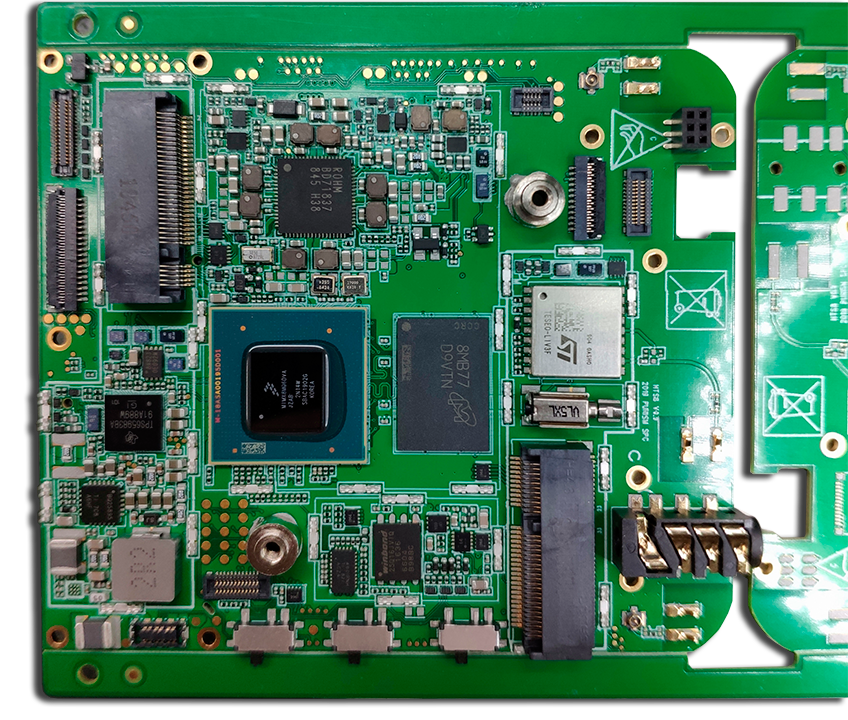Purism CTO Presents “A Mobile Phone that Respects Your Freedom” at CCCamp
Purism
Latest posts by Purism (see all)
- A Quarter Century After Cyberselfish, Big Tech Proves Borsook Right - December 20, 2025
- PureOS Crimson Development Report: November 2025 - December 15, 2025
- Purism Liberty Phone Exists vs. Delayed T1 Phone - December 10, 2025
It is not easy to build hardware that respects your freedom, and it becomes even more challenging when that hardware is a mobile phone. No one knows this better than Purism CTO Nicole Faerber–and at CCCamp 2019 she elaborated on these challenges in a 45-minute presentation: “A Mobile Phone that Respects Your Freedom.” While we strongly suggest everyone view the talk itself (it’s so good!), in this post we will pull out a few of the highlights:
Mobile phone market is a small number of big players
As everyone knows, the current smartphone market is a duopoly with the majority of phones running Android, and the rest running iOS. But the chipset market and the bulk of the smartphone supply chain is in the hands of only a few large companies. Two companies only (Mediatek and Qualcomm) account for the bulk of Android phones, which itself accounts for the majority of phones on the market. That’s not just a lot of control in a small number of companies, it also presents its own challenges if you want to create a device that respects freedom in a marketplace where the norm is proprietary software. This means most phones integrate as much as possible into as few chips as possible–and those chips generally require proprietary firmware and drivers to function.
Patents present a unique challenge
One thing many people don’t understand outside of the mobile space is the impact that patents have. Every new generation of phone technology brings with it hundreds, if not thousands, of patents. While patent holders have certain requirements to license these patents to others, they also use their patents to control the market. This is particularly relevant when you consider just how important mobile phones have become in everyone’s lives–having, in many cases, replaced the traditional personal computer as the primary computing device. This control over the market via patents presented us with a lot of challenges, in particular when attempting to source a standalone 4G modem that supported voice.
Unveiling the Librem 5 PCB
We want a smartphone that respects people’s freedom with an open, hackable design and published schematics. In fact, we are seeking “Respects Your Freedom” certification from the FSF, so we went to great effort to source freedom-respecting chips that worked with free software drivers. One big area where we could not work around proprietary blobs was the modem, so between that and our desire to use hardware kill switches–for the WiFi and the cellular baseband–we went with a design that separated out those components into their own chips (in the case of the cellular baseband, a removable M.2 card). We started by releasing a devkit in December 2018, and in this talk Nicole unveils the first public pictures of the actual phone PCB!

Conclusion
Hardware is hard, and making mobile phone hardware that respects your freedom is even harder. Challenges include finding suppliers, language barriers when working with Chinese suppliers (in many cases the only viable avenue for certain mobile phone work, these days), often dealing with long lead times, regulations and certifications. There’s also a general lack in available hackable hardware, which means that there isn’t nearly enough expertise in mobile phone hacking in the community–something we hope to change!
Nicole’s talk was marvelous–both informative and interesting–and you should really watch the video in its full version bellow, because there’s so much more to it than what we just wrote about!
Discover the Librem 5
Purism believes building the Librem 5 is just one step on the road to launching a digital rights movement, where we–the people–stand up for our digital rights, where you place the control of your data and your family’s data back where it belongs: in your own hands.

Recent Posts
Related Content
- PureOS Crimson Development Report: November 2025
- PureOS Crimson Development Report: October 2025
- Consent On Everything?
- 60 Minutes Uncovers Hacks on America’s Infrastructure
- Code is Power!


